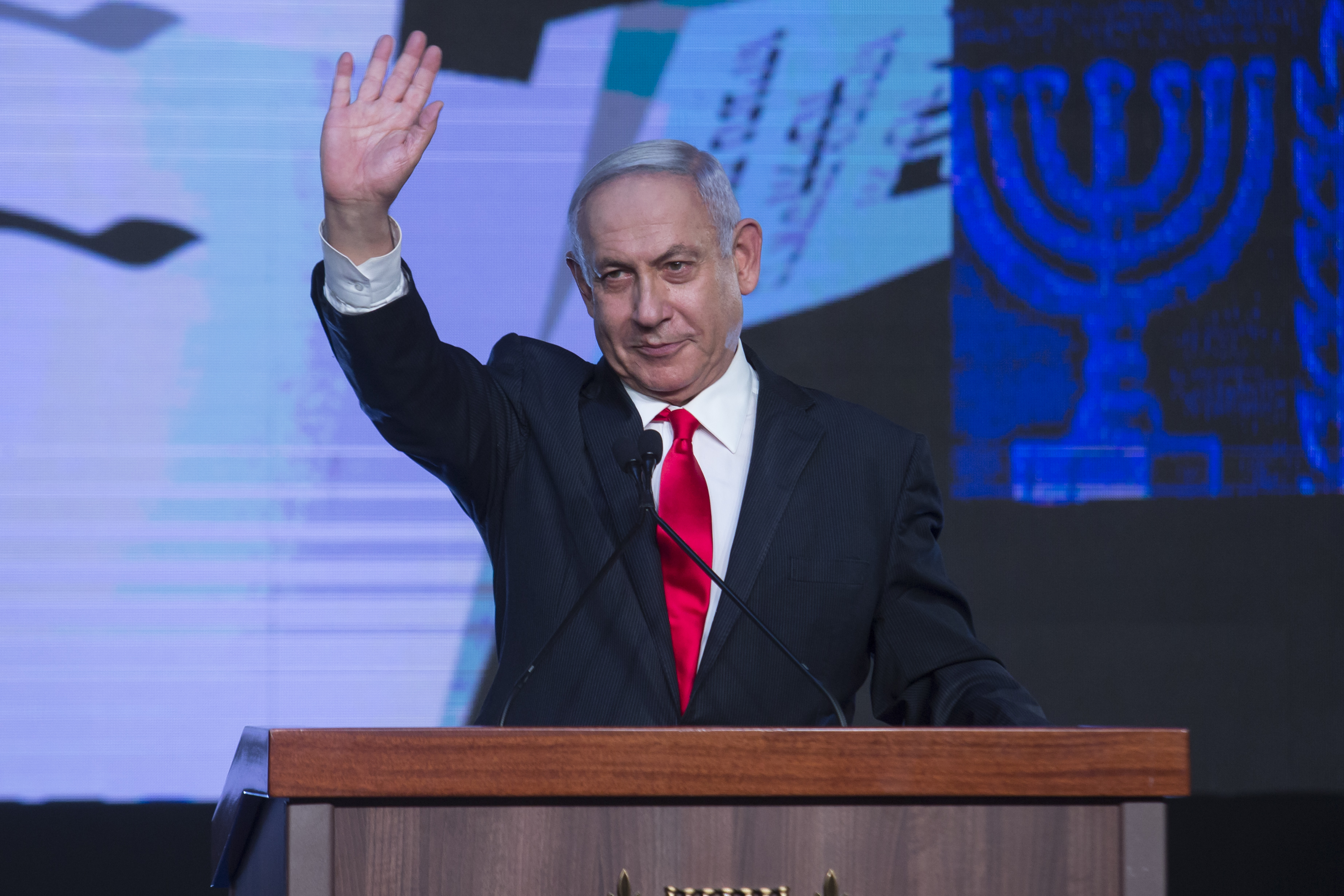After four elections in two years, Israeli opposition leader Yair Lapid, head of the centrist Yesh Atid party, has agreed to form a broad-based, national unity government with Naftali Bennett’s far-right Yamina party, likely putting an end to the political stalemate of the last two years as well as the 12-year reign of Benjamin Netanyahu, the longest-serving prime minister in Israel’s history. Under the terms of the agreement, the ultra-nationalist Bennet will serve as premier for the first two years—assuming the coalition holds up that long—before handing the premiership to Lapid.
The new “change government” includes an unprecedentedly diverse set of parties ranging from the pro-two state solution Meretz Party on the left to the pro-annexation Yamina on the far right, and will for the first time include an Arab party, Mansour Abbas’s United Arab List, in the ruling coalition.
How durable will the new coalition government be? What does a Naftali Bennett premiership mean for the future of a two-state solution and the Israeli occupation? How will Netanyahu deal with his new role as Israel’s opposition leader?
To shed light on these issues, the Middle East Institute (MEI) is pleased to invite you to join a public webinar featuring:
Speakers:
Thair Abu Rass
Ph.D candidate, Department of Government and Politics, University of Maryland
A Ph.D. Candidate at the Department of Government and Politics at the University of Maryland researching Jewish political identity in Israel. Thair holds a MA degree from the University of Houston and a bachelor's degree from the University of Haifa. A Palestinian citizen of Israel, Thair worked in both civil society and government focusing on equal employment opportunities for the Arab community and advocates for greater civil rights for minorities in Israel.
Shira Efron
Senior research fellow, Institute for National Security Studies (Israel)
A senior research fellow at the Institute for National Security Studies (INSS), a Special Advisor on Israel with the RAND Corporation, and an Adjunct Scholar at the Modern War Institute (MWI) at West Point. Efron specializes in policy analysis, research, and planning methods that can be applied in a variety of contexts. Her research focus is U.S. policy toward the Middle East, including on Israel’s evolving ties with China and the Israeli-Arab conflict, and the nexus between climate change and national security. Her studies are featured regularly in Israeli and international media outlets. Before joining INSS, RAND, and MWI, Efron was a Middle East analyst at several think tanks in Washington DC including the Center for American Progress and Middle East Institute. She has a Ph.D. and M.Phil. in policy analysis from RAND’s Graduate School, an M.A. in international relations/international business from New York University (NYU), and a B.Sc. in biology (major) and computer science (minor) from Tel Aviv University. She is a member of the board of directors of Deborah Forum, which promotes women in the security establishment, and a policy advisor with Israel Policy Forum.
Paul Scham
Director, Gildenhorn Institute for Israel Studies, University of Maryland
Director of the Gildenhorn Institute for Israel Studies at the University of Maryland, a Professor of Israel Studies at UMD, and has been a non-resident scholar at the Middle East Institute since 2004. He is also co-editor of the Israel Studies Review, the academic journal of the Association for Israel Studies, and holds a B.A. from Columbia University in history and a J.D. from the University of California at Berkeley. His research and writing interests have included Israeli and Palestinian historical narratives of their conflict, Hamas, Jordan, and the religious right in Israel, and he publishes frequent commentaries on Israeli politics and the Israeli-Palestinian conflict. From 1996-2002, he coordinated joint Israeli-Palestinian and Israeli-Jordanian joint research projects at the Truman Institute for Peace of the Hebrew University of Jerusalem. He is also the president of Partners for Progressive Israel, an American NGO.
Khaled Elgindy, moderator
Senior fellow and director, Program and Palestine and Palestinian-Israeli Affairs, MEI
Senior fellow and director of the Program on Palestine and Palestinian-Israeli Affairs at the Middle East Institute as well as an adjunct professor at Georgetown University’s Center for Contemporary Arab Studies. He is the author of the new book, Blind Spot: America and the Palestinians, from Balfour to Trump, published by Brookings Institution Press in April 2019. Elgindy previously served as a resident scholar in the Foreign Policy program at the Brookings Institution from 2010 through 2018. Before arriving at Brookings, he served as an adviser to the Palestinian leadership in Ramallah on permanent status negotiations with Israel from 2004 to 2009 and was a key participant in the Annapolis negotiations of 2007-08. Elgindy holds an M.A. degree in Arab Studies from Georgetown University and a B.A. in Political Science from Indiana University-Bloomington.
Photo by Amir Levy/Getty Images












